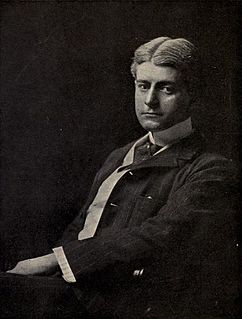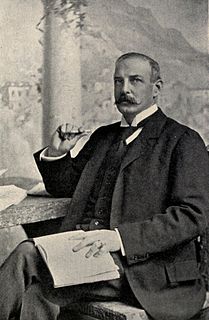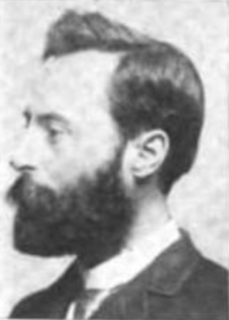
Arena Publishing Company was an American book and magazine publishing firm of the late 19th century, founded by author and editor B. O. Flower. [1]

Arena Publishing Company was an American book and magazine publishing firm of the late 19th century, founded by author and editor B. O. Flower. [1]

Headquartered in Copley Square in Boston, the firm specialized in fiction and non-fiction books on the progressive causes of the 1890s. Though in existence for only a short period, from 1890 to 1896, Arena issued books by several important progressive figures of the time. [2] The firm has been called "the notoriously radical Arena Publishing Company." [3]
Arena released books on political and economic reform and progressive religious movements (including books written by Flower). The company's promotional materials advertised "important books for thoughtful people" on "progressive modern thought and effort." It issued a number of the utopian novels that were a prominent feature of American literature in the late 19th century, [4] [5] along with related speculative and science fiction. "Arena Publishing Company of Boston published twenty or more fantastic fiction volumes between 1892 and 1896." [6] Gustavus W. Pope's Journey to Venus the Primeval World; Its Wonderful Creations and Gigantic Monsters (1895) is one example.
Noteworthy Arena writers and books:
The firm's radicalism reached even into the format of its books. Flower believed that the standard printing format of black ink on white paper caused eyestrain; Schindler's Young West, a sequel to Edward Bellamy's famous Looking Backward , was issued with colored borders, that varied among blue, green, and yellow page margins. [7]
Arena also produced popular fiction that concerned socially progressive issues. The titles and authors are now largely forgotten; Helen H. Gardener's feminist novel Pray You, Sir, Whose Daughter? (1892) and M. L. Cowles's Redpath: Life on a Southern Plantation (1893) are not unrepresentative. Flower nourished an interest in spiritualism — he served on the board of directors of the American Psychical Society — and published spiritual novels like Mary Clay Knapp's Whose Soul Have I Now? (1896).
Along with its books, the firm also published a monthly journal titled The Arena , edited by Flower, which called itself "the leading progressive review of the world." The journal featured articles and essays by the company's authors, like Garland and Schindler, plus early work by Frank Norris, Stephen Crane, and Upton Sinclair. [8] It reached a circulation of 30,000 copies. When the company folded in 1896 due to debts and lawsuits, the journal continued to publish under other management.

Edward Bellamy was an American author, journalist, and political activist most famous for his utopian novel, Looking Backward. Bellamy's vision of a harmonious future world inspired the formation of numerous "Nationalist Clubs" dedicated to the propagation of Bellamy's political ideas.

Benjamin Franklin "Frank" Norris Jr. was an American journalist and novelist during the Progressive Era, whose fiction was predominantly in the naturalist genre. His notable works include McTeague: A Story of San Francisco (1899), The Octopus: A Story of California (1901) and The Pit (1903).

William Dean Howells was an American realist novelist, literary critic, and playwright, nicknamed "The Dean of American Letters". He was particularly known for his tenure as editor of The Atlantic Monthly, as well as for his own prolific writings, including the Christmas story "Christmas Every Day" and the novels The Rise of Silas Lapham and A Traveler from Altruria.

Looking Backward: 2000–1887 is a utopian novel by Edward Bellamy, a journalist and writer from Chicopee Falls, Massachusetts; it was first published in 1888.

Francis Marion Crawford was an American writer noted for his many novels, especially those set in Italy, and for his classic weird and fantastic stories.

Frank Parsons was an American professor, social reformer, and public intellectual. Although he was educated as an engineer at Cornell University, he passed the Massachusetts state bar examination and became a lawyer in 1881. Parsons was a lecturer at Boston University School of Law for more than a decade and taught at Kansas State Agricultural College from 1897 to 1899. As a leading social commentator of the Progressive Era, Parsons authored a dozen books and more than 125 magazine and journal articles on a wide range of reform topics, including currency reform, regulation of monopolies, municipal ownership, establishment of direct democracy, and other matters. Parsons is also widely regarded as the father of the vocational guidance movement.

Hannibal Hamlin Garland was an American novelist, poet, essayist, short story writer, Georgist, and psychical researcher. He is best known for his fiction involving hard-working Midwestern farmers.

Samuel Hubbard Scudder was an American entomologist and paleontologist. He was a leading figure in entomology during his lifetime and the founder of insect paleontology in America. In addition to fossil insects, he was an authority on butterflies (Lepidoptera) and grasshoppers (Orthoptera).

Henry Blake Fuller was a United States novelist and short story writer. He was born and worked in Chicago, Illinois. He is perhaps, the earliest novelist from Chicago to gain a national reputation. His exploration of city life was seen as relavatory, and later in his life he was perhaps the earliest established American author to explore homosexuality in fiction.

Little, Brown and Company is an American publisher founded in 1837 by Charles Coffin Little and his partner, James Brown, and for close to two centuries has published fiction and nonfiction by American authors. Early lists featured Emily Dickinson's poetry and Bartlett's Familiar Quotations. As of 2016, Little, Brown and Company is a division of the Hachette Book Group.

Mary Tappan Wright (1851–1916) was an American novelist and short story writer best known for her acute characterizations and depictions of academic life. She was the wife of classical scholar John Henry Wright and the mother of legal scholar and utopian novelist Austin Tappan Wright and geographer John Kirtland Wright.
Earth Revisited is an 1893 utopian novel by Byron Alden Brooks. It is one entrant in the large body of utopian and speculative fiction that characterized the later 19th and early 20th centuries.
Young West: A Sequel to Edward Bellamy's Celebrated Novel "Looking Backward" is an 1894 utopian novel, written by Solomon Schindler, radical rabbi of Boston. As its subtitle indicates, the book was one of the many responses and sequels to Edward Bellamy's famous 1888 novel Looking Backward, and was one volume in the major wave of utopian and dystopian writing that distinguished the later nineteenth century.

Helen Hamilton Gardener (1853–1925), born Alice Chenoweth, was an American author, rationalist public intellectual, political activist, and government functionary. Gardener produced many lectures, articles, and books during the 1880s and 1890s and is remembered today for her role in the freethought and women's suffrage movements and for her place as a pioneering woman in the top echelon of the American civil service.

Nationalist Clubs were an organized network of socialist political groups which emerged at the end of the 1880s in the United States of America in an effort to make real the ideas advanced by Edward Bellamy in his utopian novel Looking Backward. At least 165 Nationalist Clubs were formed by so-called "Bellamyites," who sought to remake the economy and society through the nationalization of industry. One of the last issues of The Nationalist noted that "over 500" had been formed. Owing to the growth of the Populist movement and the financial and physical difficulties suffered by Bellamy, the Bellamyite Nationalist Clubs began to dissipate in 1892, lost their national magazine in 1894, and vanished from the scene entirely circa 1896.

Main-Travelled Roads is a collection of short stories by the American author Hamlin Garland. First published in 1891, the stories are set in what the author refers to as the "Middle Border," the northwestern prairie states of Wisconsin, Nebraska, Iowa, Minnesota and South Dakota. In the book's eleven stories, Garland portrays the hardships of agrarian life, deconstructing the conventional myth of the American prairie while highlighting the economic and social conditions that characterized agricultural communities in the rural Midwest.

Benjamin Orange Flower, known most commonly by his initials "B.O.", was an American muckraking journalist of the Progressive era. Flower is best remembered as the editor of the liberal commentary magazine The Arena, published in Boston, New York City, and Trenton, New Jersey by the Arena Publishing Co. from 1889 until 1909.
William Dennison McCrackan was an American journalist and author of books on history and travel. In 1900, he converted to Christian Science and became a Christian Science practitioner, teacher and lecturer.

The Arena was a liberal literary and political magazine published by Arena Publishing Co. in Boston, Massachusetts. It was founded by Benjamin Orange Flower in 1889 and existed for twenty years. Though it had a circulation of more than 30,000 at one point, it was rarely profitable. The final issue was published in August 1909.